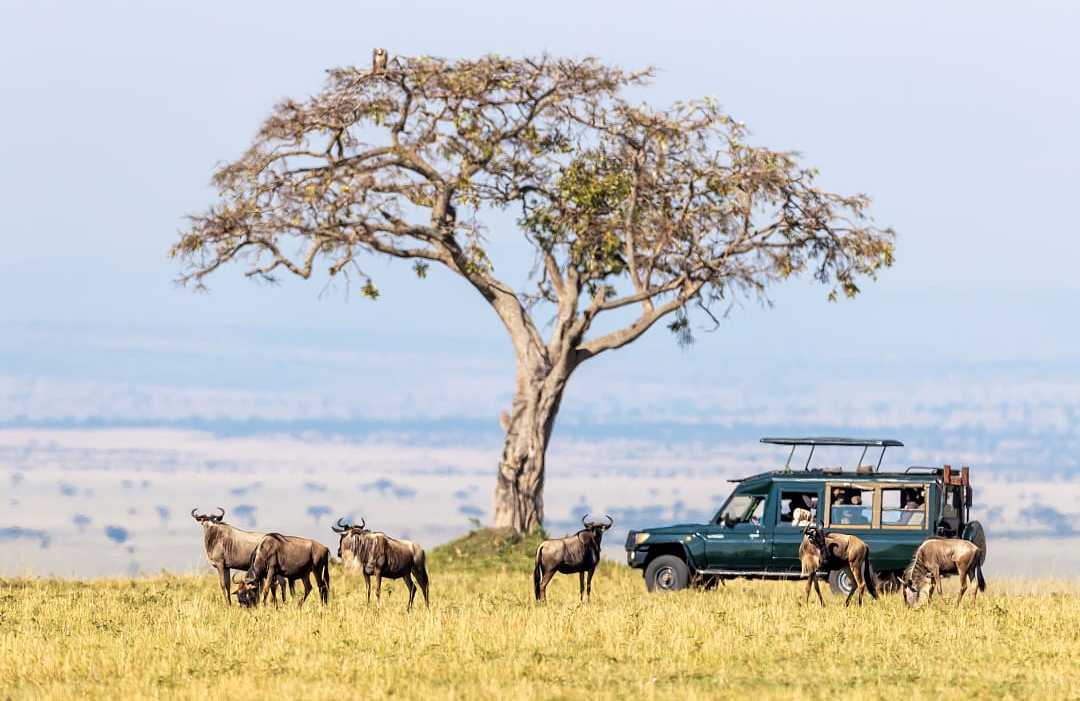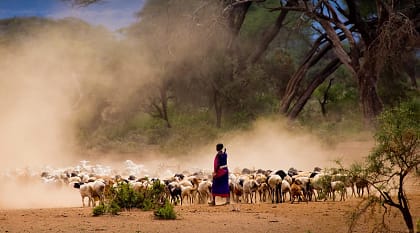The safari regions of Kenya range from vast savannas and glistening Rift Valley lakes to lush highlands and breathtaking escarpments. From the iconic plains of the Maasai Mara to the unique conservancies of Laikipia, each area presents a different facet of East Africa’s pristine wilderness. At Zicasso, we specialize in crafting itineraries that seamlessly connect these diverse habitats for a comprehensive and immersive journey.
- Maasai Mara National Reserve: Kenya’s most famous safari destination, the Mara is renowned for its exceptional density of lions, leopards, and cheetahs, and for hosting the dramatic Great Wildebeest Migration from approximately July to October.
- Amboseli National Park: Famous for its large elephant herds and spectacular views of the snow-capped Mount Kilimanjaro just across the border in Tanzania. The park’s sparse vegetation makes for excellent wildlife viewing.
- The Great Rift Valley Lakes: This includes destinations like Lake Nakuru, famous for its vast flocks of flamingos and rhinos, and Lake Naivasha, which offers boat safaris to see hippos and diverse birdlife.
- Laikipia Plateau: A region of vast private conservancies known for its successful conservation initiatives, particularly for rhinos and wild dogs. It offers exclusive and diverse safari activities not available in national parks.
- Tsavo National Parks (East and West): Together, these parks form one of the largest protected areas in the world. They are known for their rugged, wild landscapes and the legendary "red elephants" that dust themselves with the vibrant volcanic soil.
To delve deeper into these captivating areas, explore our guide to the Best Places to Visit in Kenya on Safari.







